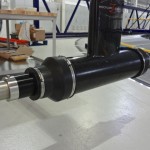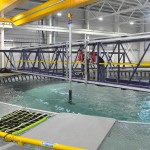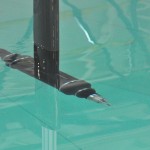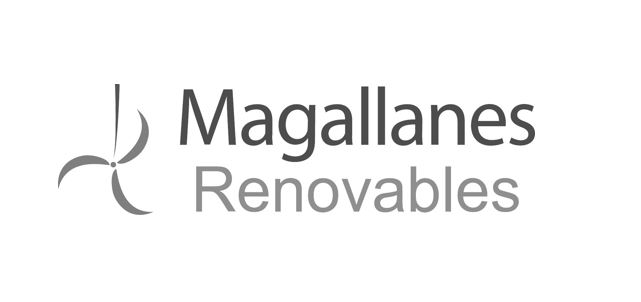Press release: Trans-Atlantic team to tackle tidal turbulence
The European Marine Energy Centre (EMEC) is working as part of a trans-Atlantic partnership looking at developing a new sensor system to measure the impact of turbulence on tidal devices.
Aiming to improve the industry’s understanding of turbulence, the project will enable developers to optimise design, and deploy technology that can withstand the effects of strong tides and currents.
Led by Rockland Scientific, the project involves UK-based FloWave TT, Ocean Array Systems and EMEC, and Canadian companies Dalhousie University and Black Rock Tidal Power.
Research will be carried out in both UK and Canadian waters – at EMEC, and at FORCE in Nova Scotia, Canada – as well as utilising the University of Edinburgh’s FloWave Ocean Energy Research Facility which can replicate tidal characteristics found at EMEC’s tidal test site at the Fall of Warness, in Orkney.
This project has recently received the internationally recognized EUREKA Label designation. EUREKA is an EU-based intergovernmental network with associate member nations, including Canada, and supports market oriented R&D and innovation projects. The label will add value to the project, providing partners with a competitive edge when it comes to commercialising technology.
Funded through a partnership between the Offshore Energy Research Association (OERA), a Nova Scotia based not-for-profit research facilitator, and Innovate UK, the UK Government’s innovation experts, this is the first announcement under the Memorandum of Understanding signed between Nova Scotia and the UK last year.
Stuart Brown, chief executive officer at FloWave said:
“FloWave is really pleased to be able to partner in this project. Our test tank is uniquely capable of replicating both EMEC and the Bay of Fundy at scale and the prospect of new instrumentation, data and analysis techniques that will help the industry better understand and address the challenge of turbulence in the tidal flow, particularly around structures and within projects, is to be welcomed. We very much look forward to working with our Canadian and UK partners over the next three years to help drive this industry forward on both sides of the Atlantic, and globally too.”
Oliver Wragg, commercial director at EMEC said:
“We’re delighted to be collaborating with FloWave, Ocean Array Systems, Rockland Scientific, Black Rock Tidal Power and Dalhousie University on this project, which will address some of the shortcomings of existing measurement technologies, enabling developers to better evaluate the dynamic behaviours of the sites in which they plan to deploy tidal energy turbines. If this can be designed into the technologies earlier on, it should reduce risk in the latter stages of development and testing at EMEC.”
Nicola Pearson, commercial director at Ocean Array Systems said:
“Ocean Array Systems is excited to provide the link between the MRCF TiME project and the OERA/ Innovate UK InStream project.
“Ocean Array Systems will use its EnvironmentStudio and TurbineGrid software to model device-turbulence interaction using test tank and ocean data. This work will provide turbine developers with a direct translation of unsteady loads between conditions at FloWave and those experienced at full scale under turbulent marine conditions.”
Rob Saunders, head of energy at Innovate UK said:
“The marine renewable energy sectors in both the UK and Canada, particularly Nova Scotia are very strong. By supporting innovation and collaboration between the two countries we can combine expertise, knowledge and experience to tackle shared challenges associated with tidal energy, and make it a more affordable, low carbon energy alternative while also creating jobs, growth and boosting productivity.”
“At Innovate UK we are pleased to be working alongside OERA as Nova Scotia is a growing and large potential market for British tidal energy companies.”
Nova Scotia Energy Minister, Michel Samson added:
“Canada and the United Kingdom are among the recognized leaders in marine renewable energy and ongoing investments in tidal research spur innovation and development in both countries.
“These projects are an example of how partners from around the world are coming together to better understand the opportunity in our oceans and how to harness their power – safely, effectively, and in an environmentally responsible way.”
Source: Innovate UK press release








